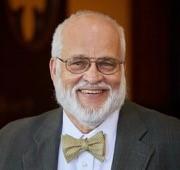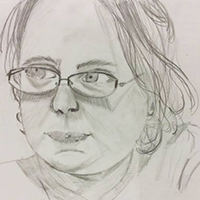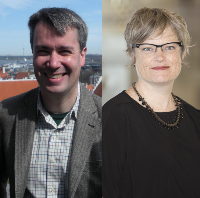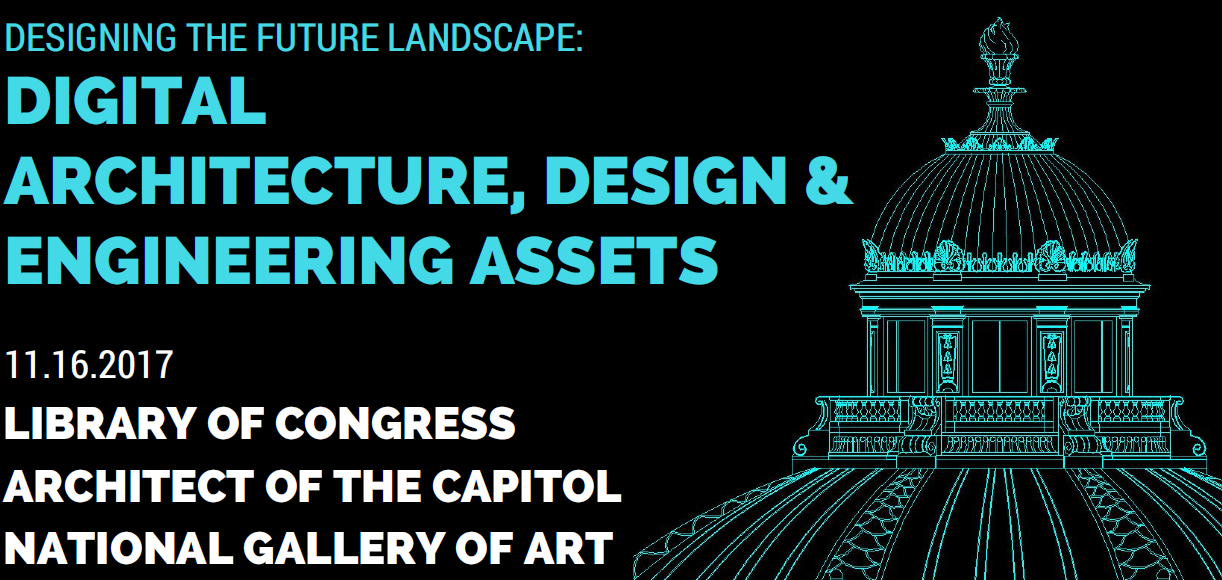Blog
Unless otherwise stated, content is shared under CC-BY-NC Licence
What we’ve done well, and some things we still need to figure out
David Minor is Director of the Research Data Curation Program at the University of San Diego Library and formerly the Chronopolis Program Manager
I’ve worked in the Digital Preservation field for about a dozen years, and have had the good fortune to see a number of generations pass. I’d like to offer some thoughts on what we’ve done well, and some things we still need to figure out.
What we’ve done well:
- Technology. In many ways, we’ve “solved” many of the digital preservation technology issues. Can we preserve bits for years and years? Yes. Can we move these bits around multiple locations and service backends and guarantee their persistence? Yes. Can we migrate data through various data types and outputs? Yes. (If we need to. Still an open question.) In many ways, the digital preservation community has made enormous strides in infrastructure that would have stymied us in the recent past. Can we do better? Of course. Will there be new technologies that come along and cause us to rethink everything we’ve done up to now? Hopefully. But if not, well, we can do our jobs, and we can do them well.
- Variety of options. A striking facet of our community is the range of non/not-for profit options that 100% compete with commercial fare. We don’t celebrate this enough. Other significant segments of the digital library landscape have struggled with this for decades with little success. Today an organization that wants to contract with a preservation service can choose from at least a half dozen community-driven efforts, that are at least as good (if not better) than expensive commercial offerings. This is completely beyond awesome. It shows both the need for digital preservation across wide swaths of organizations and enterprises, as well as the dedication of large groups of people to solve thorny issues.
Where is the real risk?
Carl Grant is Associate Dean/Chief Technology Officer at University of Oklahoma Libraries
It’s always one of my goals in my role, to watch emerging technologies and to try and identify those that, per the model Geoffrey Moore established, will “cross the chasm” (https://en.wikipedia.org/wiki/Crossing_the_Chasm ) and have an impact in research and pedagogy. This is always a risky move. You can be totally wrong, spend a fair amount of money and have little to show at the end. Or you can be right and be a leader in helping deploy that technology in addition to being well positioned to capture the historical record surrounding it.
Too many librarians are extremely risk adverse, due to typically working in a publicly funded institution. I understand why that makes so many hesitant to take a risky approach. But I wonder if they’re weighing the right risk? In my mind, I want the library to be seen as a place to come and try out new technology, a place where people can get help evaluating the pluses and minuses of that technology and help in using it to pursue their pedagogical and research goals. I want them to see the library as a place of engagement, exploration, innovation and synthesis. We can’t do sitting on the sidelines. Especially, in a world where technology is advancing as rapidly as it is today. Doing so is to risk being seen as obsolete, a problem I hear all too many colleagues moaning about being the perception of their library on their campuses.
Digital Preservation Opportunities at ICPSR
Jared Lyle is Archivist and Director for ICPSR Curation Services and the DDI Alliance in Michigin, USA
The Inter-university Consortium for Political and Social Research (ICPSR), a social and behavioral science data archive based within the Institute for Social Research at the University of Michigan, is happy to celebrate the first ever International Digital Preservation Day. ICPSR curates, preserves and shares 10,000+ data collections. We also provide educational opportunities, including our Summer Program in Quantitative Methods and Social Research, and conduct data stewardship research projects.
ICPSR has been preserving data collections for over 50 years. Over the decades, we’ve archived data from punched cards and floppy disks and other media, as well as data in a wide range of formats, including now-decommissioned OSIRIS dictionaries written in EBCDIC. We still do the occasional legacy conversion, such as rescuing data from a pioneering 1950s study of retirement, although the majority of data we acquire today arrive in more modern formats, such as SAS, SPSS, Stata, and R. Regardless of the age, type, or shape of the data, preservation opportunities and challenges abound.
Networked Approach to Preserving Software
Jessica Meyerson is Research Program Officer for Educopia Institute in Austin, Texas, United States
One of key characteristic of information infrastructure outlined by Star & Ruhleder (1996) is that is ‘becomes visible on breakdown.’[1] While software does in fact breakdown, requiring patches or upgrades, as digital materials move from active use to the reuse context of cultural memory organizations, software breakdown can be understood as the inability to support meaningful access to digital information (ie, scientific or social scientific data, born-digital manuscript materials, complex models of the built environment) due to software dependencies and their associated challenges. This breakdown not only shines light on software (as cultural heritage itself and a tool for accessing existing digital cultural heritage), it makes visible the social structures and practices in which software is embedded – is a comprehensive breakdown of social structures to support information access including communication, legal systems and markets. By thinking about software as infrastructure we gain insight into ways in which software preservation fits into broader digital preservation practice as well as approaches that may prove to be the most effective in addressing the challenges of software preservation.
Towards a Philosophy of Digital Preservation
Stacey Erdman is Digital Archivist at Beloit College, Wisconsin USA
Are archivists born or made? I suppose we’ll never know the answer to that question definitively, but I feel pretty confident that if there’s an archivist “gene” I’ve surely got it. I’ve been actively building a personal archive since I was old enough to understand what memories are.
Of course, coming of age during the rise of the personal computer presented me with challenges in this arena. I still own my first computer – an Apple IIc, along with the floppies that contain my clumsy attempts to learn to program in BASIC. When I went off to college in 1995, I purchased a used Macintosh Plus and dial-up modem; soon I was surfing Mosaic from my dorm room in Urbana-Champaign – home to HAL 9000, the fictional computer from 2001: A Space Odyssey. I discovered BBSs, IRC, newsgroups, MUDs, and became a voracious e-mail correspondent. I dove headfirst into this new online life, but with time, I grew concerned about the astounding impermanence of it all. How was I to document the time I was spending in these realms?
The Next Leg in the Preservation Relay
Amy Kirchhoff and Sheila Morrissey work for the Portico digital preservation service which is part of ITHAKA, a not-for-profit organization in the USA
Portico, a service of the non-for-profit organization ITHAKA, is a preservation service for the digital artifacts of scholarly communication. Portico’s original remit 15 years ago– one shared by many DPC member organizations – was to develop a sustainable infrastructure, both institutional and technological, that would support the scholarly community’s transition from reliance on print journals to reliance upon electronic scholarly journals – more generally, to ensure that scholarly literature, published in electronic form, remains available to future generations of scholars, researchers, and students.
The occasion of the International Digital Preservation Day is an opportunity for us to reflect both on the continuing challenges (and opportunities) in preserving scholarly literature, and what we think might be new challenges ahead.
Written into our institutional DNA is the requirement simultaneously to preserve content at scale, and to preserve it in a fiscally sustainable way. Again, this is challenge we all share, across all the content domains we jointly seek to preserve. The sheer ever-increasing volume of content flowing into Portico was a major motivator for undertaking a two-year project, launched in mid-2016, to develop the next-generation Portico technical infrastructure project.
Educating Digital Stewards
Rhiannon Bettivia is a Postdoctoral Research Associate at the School of Information Sciences (iSchool) at the University of Illinois, Urbana-Champaign
I frame this post as a set of considerations for developing training and teaching modules for students and trainees endeavouring to enter the field of digital preservation. I teach such a module 2-3 times a year, and my university offers it 4 times a year with the help of adjunct instructors. It is often full to waitlist room only, meaning we will send anywhere from 50 up to as many as 110 students through this course in a calendar year. Chris Prom, of the University Archives, related that he was once requested to teach a module on advanced arrangement and description of digital materials for the Society of American Archivists nine times in a single year. The trend here is pretty clear: there are plenty of practitioners in the pipeline, ready to enter our field and to steward us into the future of digital preservation.
Brushing up on Digital Architecture, Design and Engineering Assets
Kate Murray works for Digital Collections & Management Services at the Library of Congress in Washington DC
On November 16, 2017 the Library of Congress, Architect of the Capitol and National Gallery of Art hosted the Designing the Future Landscape: Digital Architecture, Design and Engineering Assets symposium at the Library of Congress. The programming for the over 140 attendees included panels on lifecycle data management, data flow, access use cases, future-looking approaches and an ADE formats primer.
The presentations were recorded for later distribution on social media platforms, including YouTube, and a report covering the themes of the day will be published in early 2018. See #DigADE2017 on Twitter for on-the-spot reporting during the event and links to published information will be widely distributed when available.
DAM and LAM - towards convergence
Helen Hockx-Yu is Program Manager, Digital Product Access and Dissemination in the Office of Information Technologies for University of Notre Dame, Indiana USA
INTRODUCTION
Digital media are frequently produced and widely used at the University of Notre Dame (UND) to support education and research, and to document campus activities and athletic competitions. UND’s media products range from photographs and simple sound or video capture to sophisticated footage appropriate for national broadcasts. UND’s video assets are presently estimated to measure ~2PB.
As part of a project aimed at developing a common solution for managing Notre Dame’s video assets, we gathered and documented requirements from a wide range of stakeholders on campus and used these to assess Digital Asset Management (DAM) software.
DAM software vendors seem to have picked a very broad term for a relatively small software products segment. DAM systems (DAMs) in general have a much narrower focus than the collective name suggests. Different variants of DAMs are difficult to differentiate, making it hard for organisations to select the right product.
DAMs are a breed of software that manages specific types of digital information within a specific organisational context. DAMs are mostly intended for multimedia or rich media, such as photographs, videos, animation, graphics, logos, and marketing collateral. DAMs emerged in the private sector to support digital media creation, marketing, publishing, and brand management.
Operationalizing Digital Preservation: An Innovative New Curriculum
Kara Van Malssen is Partner and Senior Consultant at AVPreserve in New York
I work at AVPreserve, a consulting and software development firm, where we focus on developing innovative solutions that advance the ways data and information serve individuals, organizations, and causes. Often, we are asked to come in to an organization and help them assess their digital preservation efforts, in order to move toward expanding capacity, scope, functionality, overall efficiency, or standards-compliance. We start by looking at their current digital preservation practices, evaluating technologies, policies, workflows, procedures, staffing/roles, and other resources. It is not uncommon for us to find that the organization is “stuck” in some respect, struggling to, for example, consistently collect all digital assets of value, implement comprehensive ingest procedures, or store all content in a managed preservation environment. And while the causes of these challenges vary between organizations, lack of funding is generally not the culprit. There are a variety of operational factors that need to be considered in order to implement successful digital preservation processes.




















































































































































